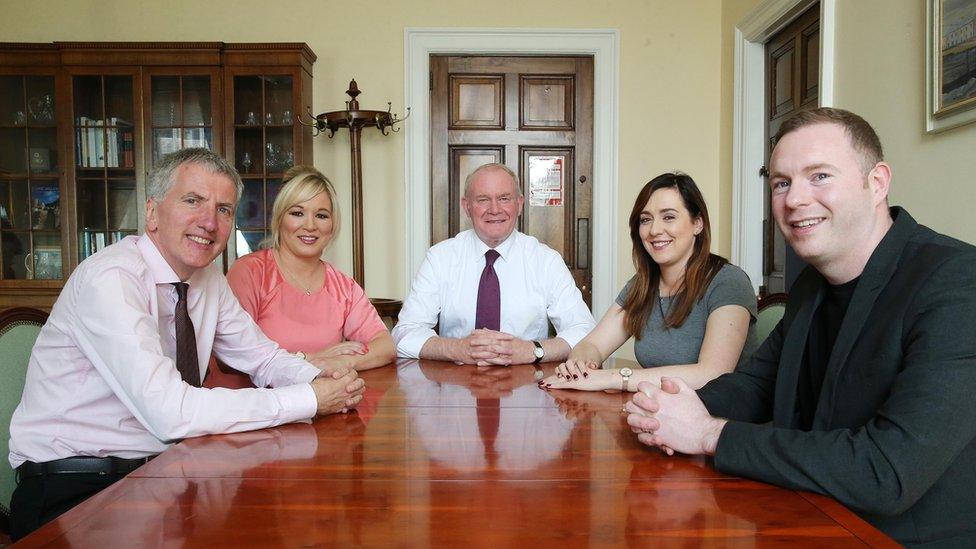NI Executive: Finance minister wants power to borrow money from Treasury
- Published
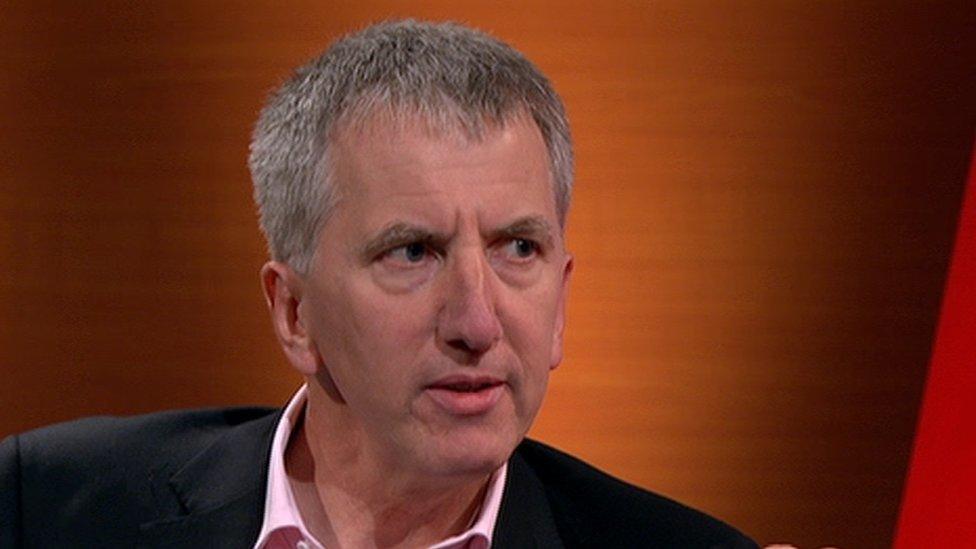
Mr O'Muilleoir said at present, the executive did not have enough "flexibility" around its budget
Northern Ireland's new finance minister, Máirtín Ó Muilleoir, said he wants the executive to have greater power to borrow money.
"It is the ability to remove the shackles of London on our ability to make the correct decisions that we would like," he said.
However, Ulster Unionist Philip Smith argued that this was not the solution.
The draft framework for a new Programme for Government will go out to public consultation later.
On Thursday, the new executive met for the first time and agreed the document. It will be published at midday on Friday and the consultation process will run into the summer.
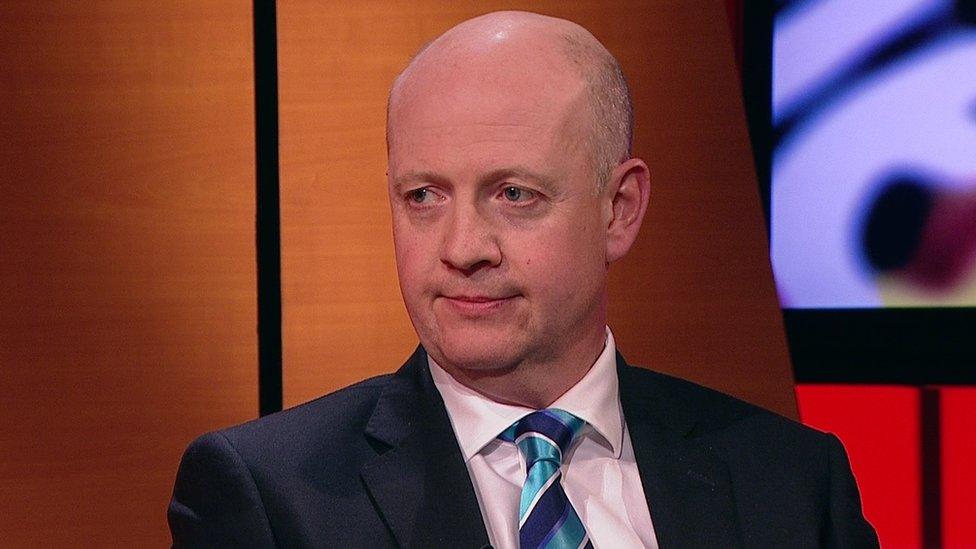
Philip Smith, UUP, said he would be opposing more borrowing
Speaking on BBC Northern Ireland's The View, Mr Ó Muilleoir said the executive did not currently have enough "flexibility" around its budget.
He said he had spoken to the chief secretary at the Treasury department on Thursday and had asked for an urgent meeting.
"We need the right, as an executive, to borrow money and London should not be able to prevent us from doing that," he said.
"The second argument is the austerity budget, cutting the budget, cutting the bloc grant, heaping maximum pain on the poor is not helping the economy, it's counter-productive."

Analysis: BBC News NI's Economics and Business Editor John Campbell
The executive currently has a borrowing facility known as the Reinvestment and Reform Initiative.
It allows borrowing of up to £200m a year, up to a ceiling of £3bn.
There are also additional borrowing powers which relate to the funding of a civil service redundancy scheme and shared education and housing.

He said he wanted the power to borrow money to invest in new homes. Another priority would be the expansion of Londonderry's Magee campus at Ulster University.
However, Mr Smith, whose party has gone into opposition at Stormont, along with the SDLP, said he opposed borrowing more money.
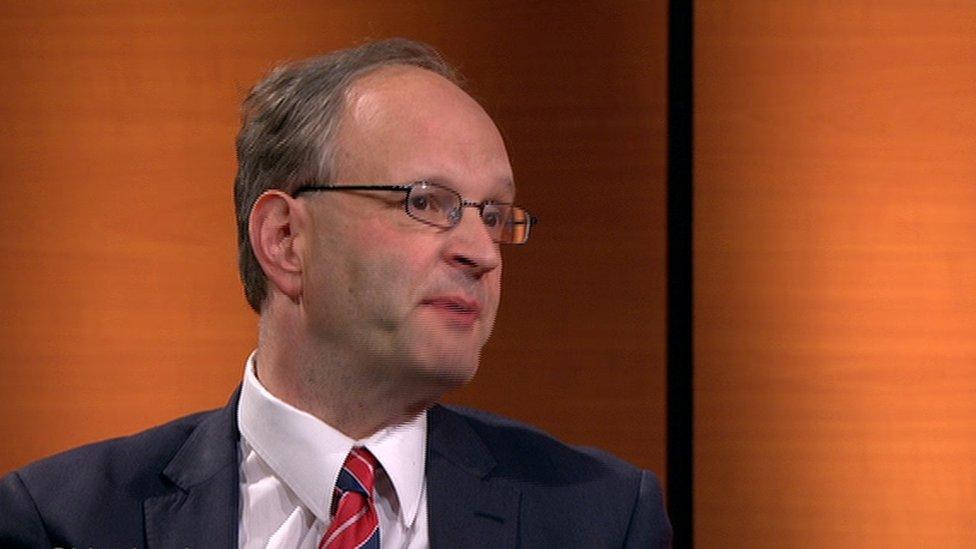
Education Minister Peter Weir said the executive would want to take a collective decision on "how best we can finance issues"
"We already have, as a region, higher per capita debt than Scotland and now we discover that we are going to try and increase that debt to try and fill the hole in finances," he said.
"Certainly, our role as an opposition will be to be constructive, but also to hold these guys to account. The first ministers talked about this being an executive of delivery. We will be looking to see where the delivery is."
Education Minister Peter Weir, DUP, told The View that the executive would want to take a collective decision on "how best we can finance issues".
"We want to ensure whatever resources we have, we get the best bang for our bucks," he said.
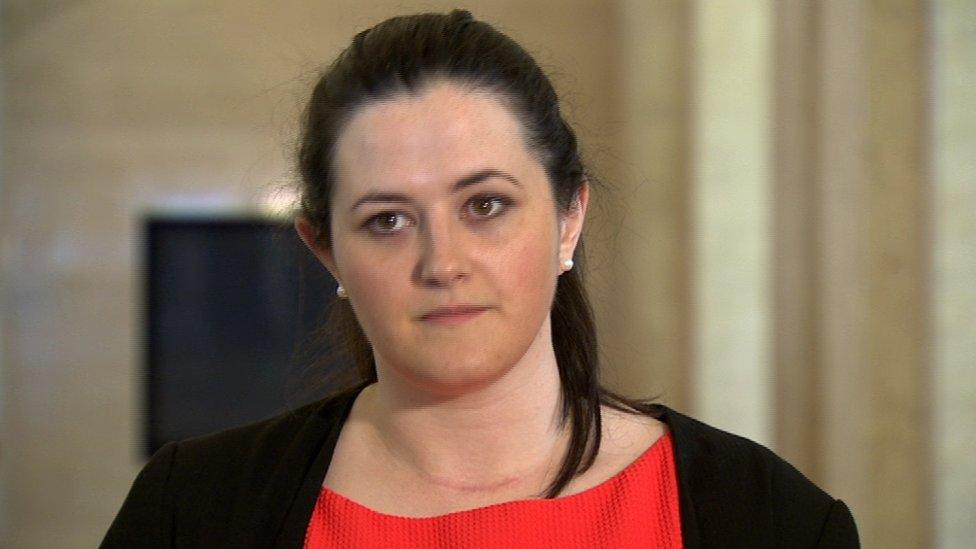
The executive was formed after independent unionist MLA Claire Sugden was appointed as justice minister
In Northern Ireland's new executive, eleven out of 12 posts have been shared out between the two biggest parties, the Democratic Unionists and Sinn Féin.
The executive was formed after independent unionist MLA Claire Sugden was appointed as justice minister.
- Published26 May 2016
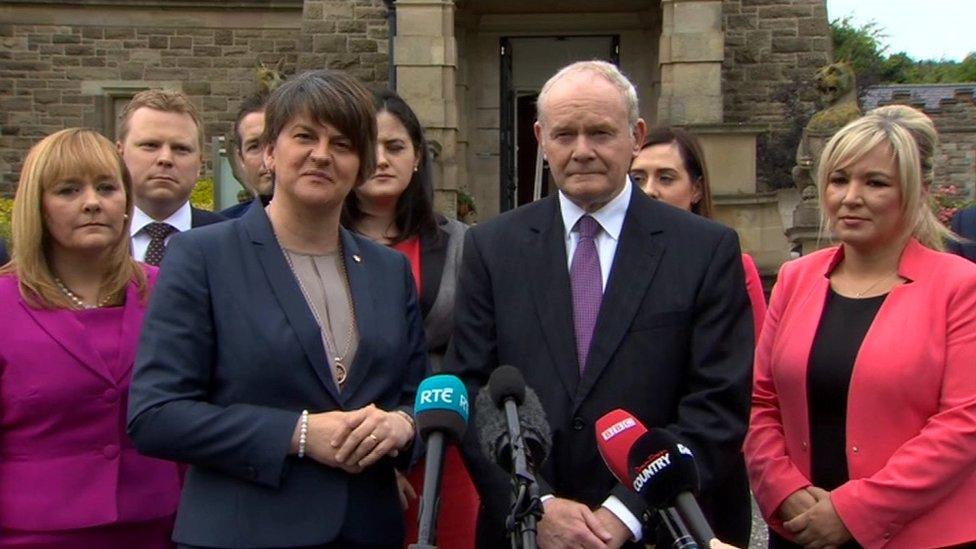
- Published25 May 2016

- Published25 May 2016
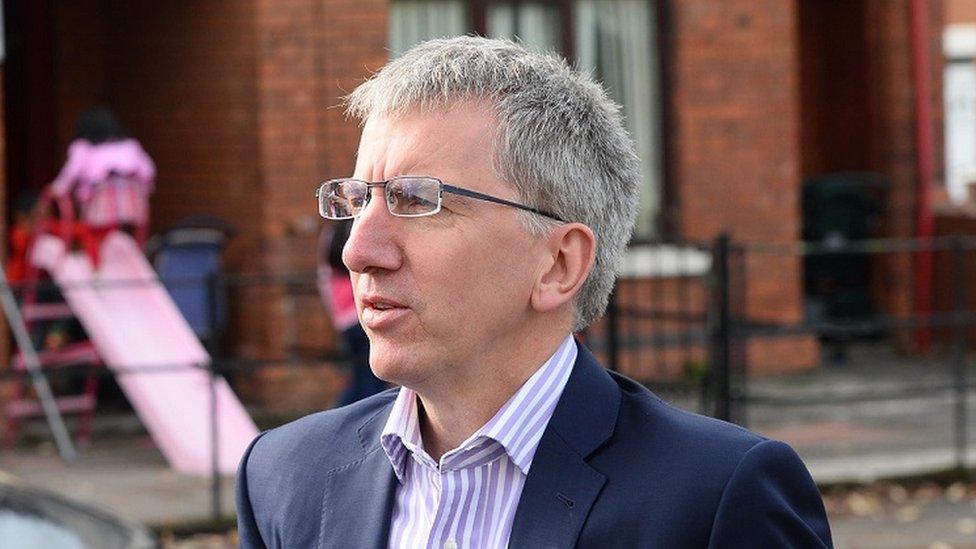
- Published25 May 2016
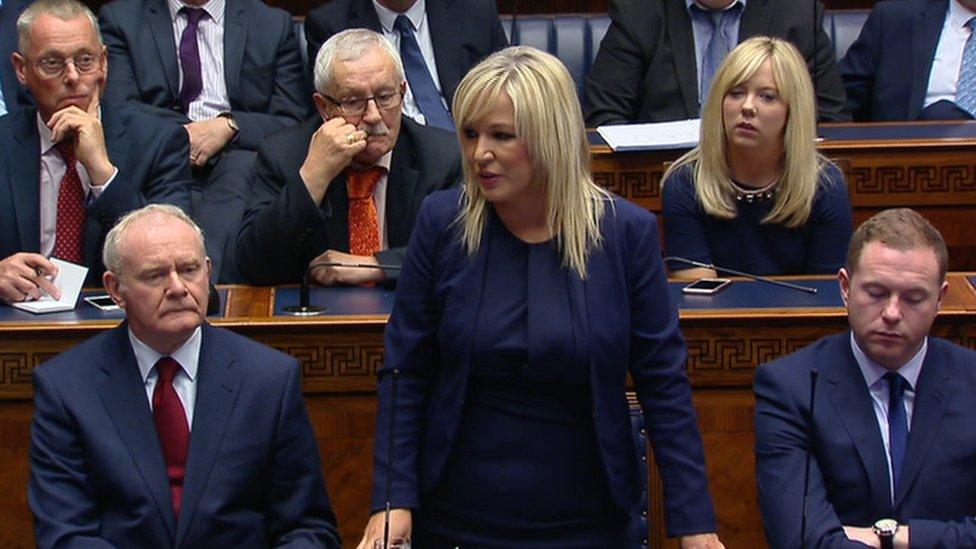
- Published25 May 2016

- Published25 May 2016
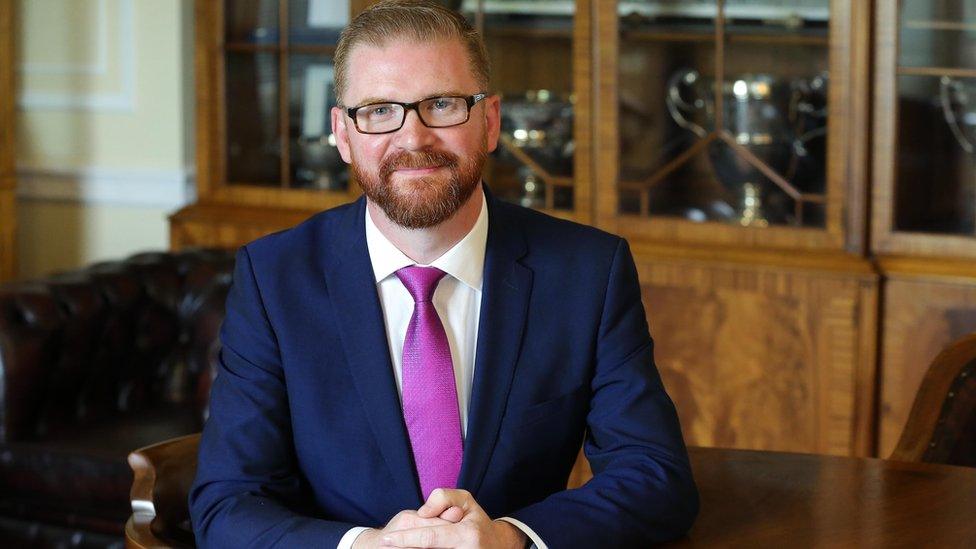
- Published25 May 2016
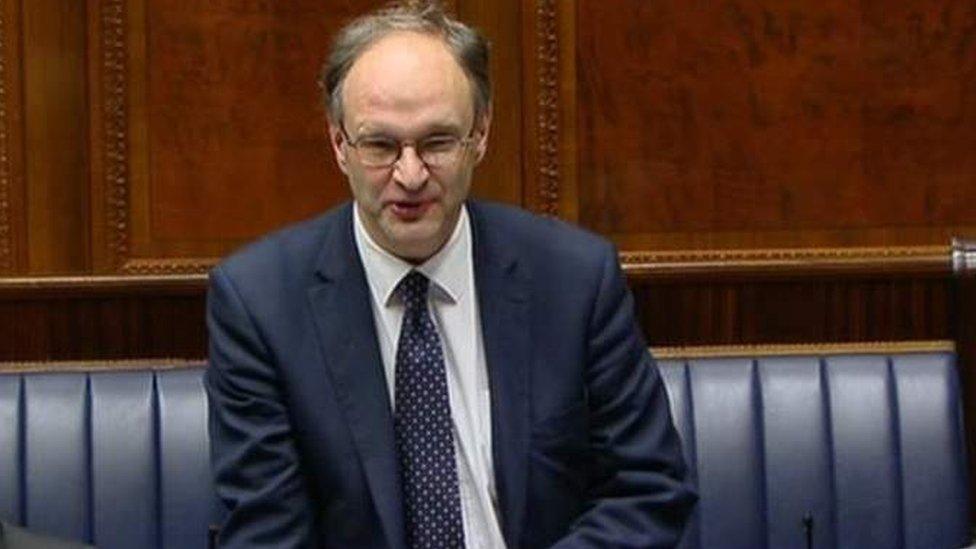
- Published25 May 2016
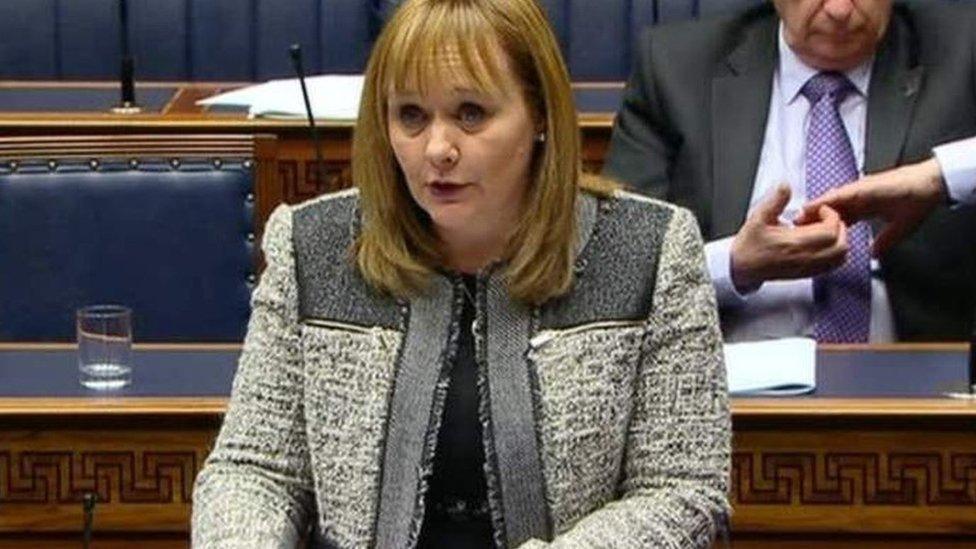
- Published24 May 2016
